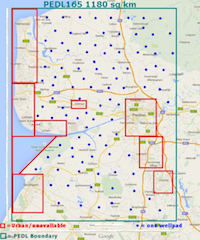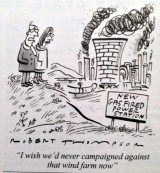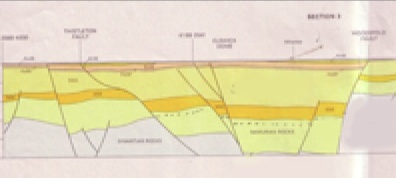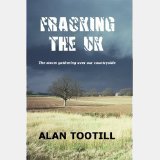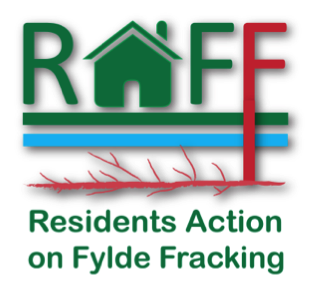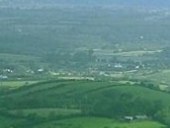Those 200 wells continued
At Professor Styles suggestion we decided to trace where his unambiguous claim in the Daily Telegraph of 10th August 2013 that
“It is not a new technology, we have had 200 wells fracked in England and no one has even noticed.”
came from.
He told us he had got his information from The Royal Society Report on Shale Gas. Obviously that was good enough for Professor Styles but we weren’t quite so easily persuaded (even though we are not renowned academic scientists like what he is), and decided that this was a source that needed checking. We always though that scientists were supposed to go back to the data too, before just accepting information which suits their pet theories but, heigh ho, what do we know?
So we emailed the Royal Society
Dear Sir / Madam
I note that some attention has been given recently to the claim made in the Royal Society Report ” Shale gas extraction in the UK: a review of hydraulic fracturing – June 2012″ that
“Over the last 30 years more than 2,000 wells have been drilled onshore in the UK, approximately 200 (10%) of which have been hydraulically fractured to enhance recovery”
I have been unable to find further detail on the locations of these wells, when they were hydraulically fractured, or the volumes of fluids used.
I wonder if you could ask the reports authors to furnish some more detail?
Many thanks in advance
The reply came straight back
“The Royal Society and Royal Academy of Engineering working group received this number from evidence taken from government officials. Therefore if you would like more specific details, then it would probably be best for you to contact Toni Harvey (DECC’s senior geologist) [email protected]”
Aha so it seems the Royal Society didn’t check these figures before using them in unequivocal statements either then!
We wrote to Ms Harvey with a copy of the question posed to the Royal Society.
I wonder if you would be able to provide the information requested below. The Royal Society tell me the information came from DECC.
Answer came there none.
We emailed again
I haven’t had any response at all to my recent email to you.
If I don’t hear from you by the end of the working week I will send in an FoI request covering the same ground.
This time we got an answer
I’m sorry for the delay, I’ve been out of the office.
DECC has records of some kind of the drilling of 2159 onshore wells (which we add to when a new one is spud, see “basic onshore well data” on https://www.gov.uk/oil-and-gas-onshore-exploration-and-production
We do not however have records of how many of these were fracked, because until recently fracking was regarded as a fairly routine oilfield operation and not subject to specific consent. From enquiries to the operators, we believe that at least 200 did have hydraulic fracturing treatments of some kind, but we would emphasise that these non-shale fracs are not comparable, in the volumes of fluid employed, to Cuadrilla’s operations at Preese Hall in 2011 – the non-shale fracs are much smaller.
I hope that help.
So there are in fact no records which back up this claim. The “evidence” is merely anecdotal. You may be aware how scathing the frackers are about the “anecdotal” evidence for water contamination. It seems though that they are quite happy to give credence to anecdotal evidence when it suits them.
Even if the numbers were correct Ms Harvey is quite clear that “we would emphasise that these non-shale fracs are not comparable, in the volumes of fluid employed, to Cuadrilla’s operations at Preese Hall in 2011 – the non-shale fracs are much smaller”.
So clearly any attempt to use this “data” to suggest that what may have gone before is any sort of analog for even Preese Hall’s single well would be refuted by the DECC senior geoscientist. To suggest that these old fracked wells would bear any resemblance in terms of impact and potential risk to the 100 well pads with no less hat 40 wells on each proposed by Cuadrilla is clearly outrageously disingenuous!
We emailed again
So you would agree that any attempt by politicians and the media to reassure the general public by referring to these fracked wells would be highly misleading?
She executed a neat body swerve
Sorry … , that’s not a question for a technical person like me.
If you want an answer I’d be happy to refer you to one of the policy people.
We asked her to do so and also asked
Can I ask one more question – How are you defining “fraccing” here? Do DECC have a formal definition of what “fraccing” is?
and we subsequently received this rather waffly response which totally ignores the potential amenity value impacts (traffic, infrastructure, light pollution and noise pollution.) which concern many people
I have not seen the particular comments you refer to, but it is certainly one of our standard briefing lines that fraccing technology is not itself novel.
I think there are relevant inferences which can be drawn from the earlier fracs, even though they are much smaller than we would expect for shale gas. The same kind of risks (as identified by the Royal Society report, etc.) do occur in these smaller fracs. For instance, if it were really possible for fraccing chemicals to migrate through solid rock and contaminate aquifers at a higher level, that could occur in small fracs too. (In fact, there is no evidence to date of any such migration.)
The one risk in which there is a clear scaling factor is seismic activity, where the risk does correlate with the volume of water injected, and is not associated with the sort of smaller fracs previously performed in the UK. But as you may know, we have instituted new controls to mitigate seismic risks in shale gas fraccing, since these were was first identified through the experience of Cuadrilla’s fraccing operations at Preese Hall in Lancashire.
Other issues which may be matters of public concern do scale with the size of the frac – the amount of water and other materials required plainly does so. But so far as the risks of the fraccing operations themselves are concerned, I do think there are legitimate inferences, and reassurance, to be drawn from the previous experience of fraccing in the UK.
You also asked if we have a formal definition of fraccing. We don’t. But generally speaking, we would recognise fraccing by the application of hydraulic pressure to the rock around a wellbore, with the intention of fracturing the rock or enlarging pre-existing fractures. For instance, there have been questions whether an acid wash procedure planned by Cuadrilla at Balcombe constitutes fraccing. We don’t think so, because no elevated pressures will be employed and there is no intention to fracture the rock, merely to clean up the mudcake and drilling debris around the wellbore.
Frankly we are amazed that the DECC should be suggesting that a non-shale single vertical well frack is any sort of analog for high volume hydraulic fracturing using multi-lateral wells, especially as they don’t even know for sure that they have even taken place – remember Ms Harvey’s “We do not however have records of how many of these were fracked”.
The bland attempt to paper over the cracks here is not unexpected. What is more concerning is that there is evidently no formal definition of fracking. This is quite amazing given that it is proposed that community benefits should only be paid if fracking takes place!
It also raise questions as to how planning permission for fracking can be applied for and granted if even the DECC are unable to define what “fracking” is.
Finally, DECC have confirmed by letter to another correspondent
So I think we can say with some authority
- There is no concrete evidence that 200 wells have been fracked in the UK
- There are anecdotal reports, but only from the industry themselves which suggest that there may have been.
- Nobody appears to know anything about these fracks – where, when, how much fluid, what pressures etc
- What we DO know is that it they did not involve high volume hydraulic fracturing
- The DECC confirm that they were not into shale
- The DECC senior geoscientist “emphasises that these non-shale fracs are not comparable, in the volumes of fluid employed, to Cuadrilla’s operations at Preese Hall in 2011 – the non-shale fracs are much smaller.”
So next time Peter Lilley is trying to pretend in a radio interview that we have nothing to worry about because we have seen 200 wells fracked in the UK, that is the “little list” you need to shoot him down.
Oh, and Professor Styles, you might want to check the sources of and accuracy of your data before getting yourself quoted by the Daily Telegraph next time. Isn’t that what real scientists do?

